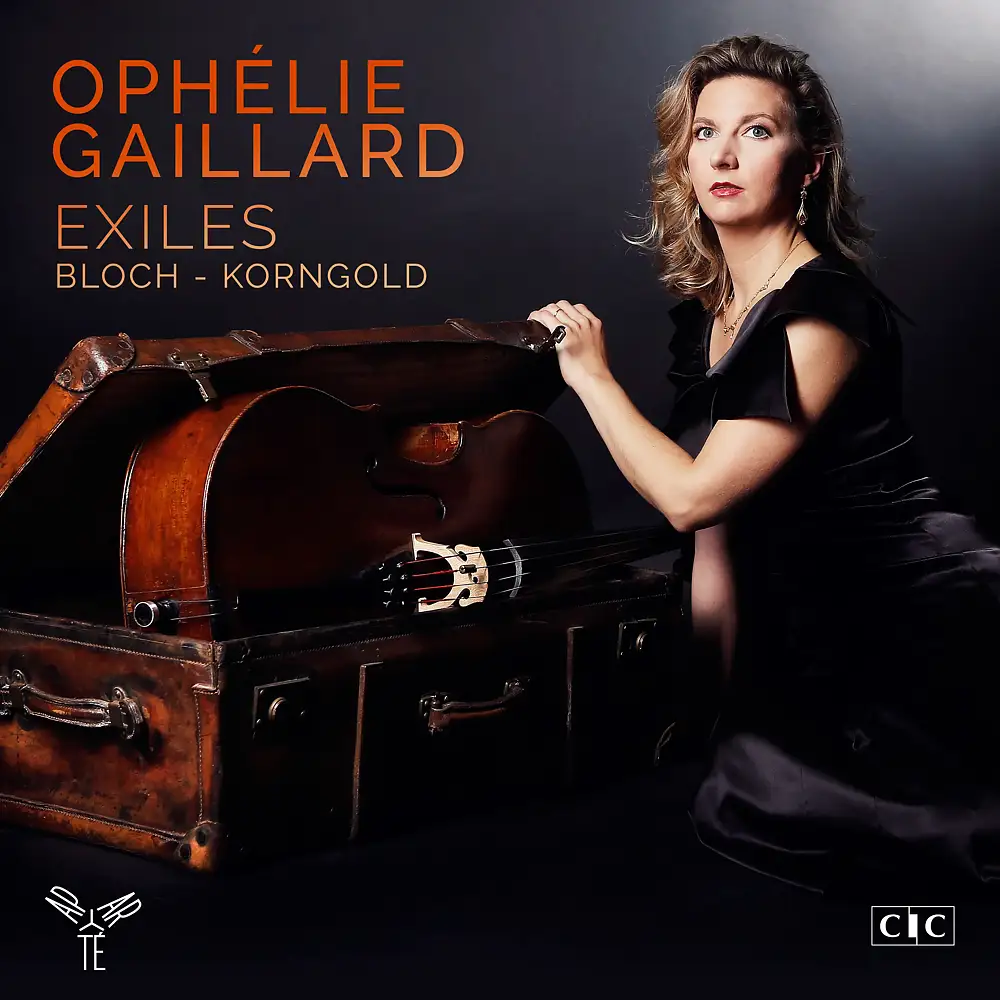Exiles
Catalog Number: AP142D
Throughout the 19th and early 20th centuries, the United States, land of freedom, open to the world, a democracy concerned with human rights, attracted emigrants of all origins. Rightly or wrongly, the young nation, in full economic expansion, embodied a land of redemption for the composers brought together by Ophélie Gaillard. After Alvorada, her globe-trotting cello leads us in the footsteps of Bloch, Korngold, Prokofiev, Chava Alberstein and Giora Feidmann, singing their exile, whether suffered or deliberately chosen. She makes us vibrate to the sound of a film score (Korngold's Concerto), a prayer (From Jewish Life), an Hebraic narrative (Schelomo), a lullaby, a wedding dance... The spirit of celebration, tenderness, religious meditation: so many facets of daily life and the culture of several generations of Jewish immigrants, related by Ophélie Gaillard's humanistic bow.
Pays de la liberté ouvert au monde, démocratie soucieuse des droits de l’homme, jeune nation en pleine expansion économique, les États-Unis attirent tout au long des XIXe et XXe siècles, des émigrants de toutes origines. Ils personnifient à tort ou à raison, une terre de rédemption pour les compositeurs invoqués par Ophélie Gaillard. Après Alvorada, son violoncelle voyageur nous conduit sur les pas de Bloch, Korngold, Prokofiev, de Chava Alberstein et Giora Feidmann, nous chante leur exil, subi ou délibérément choisi, et nous fait vibrer au son d'une musique de film (Concerto de Korngold), d'une prière (From Jewish Life), d'un récit hébraïque (Schelomo), d'une berceuse, d'une danse de mariage... L'esprit de fête, la tendresse, le recueillement religieux, autant de facettes de la vie quotidienne et de la culture de plusieurs générations de migrants juifs contés par l'archet humaniste d'Ophélie Gaillard.
Published date
2017-03-31
Number of discs
1
Channels
stereo:24:2.0
Loading...
Made in Sweden since 1999. In collaboration with Textalk.
Cart
| Artikel | Antal | Beskrivning | a pris | Totalt |
Env.session: NULL Env.order NULL string(2) "en" collector.CheckoutUrl collector.OrderItemCount 0 collector.CartUrl NULL collector.Order NULL

